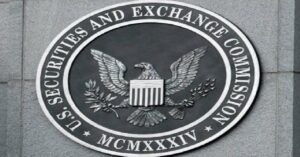One place Washington lawmakers agree is the new token world. But that hasn’t filtered to the regulators. Unfortunately, token regulations are befuddling. But the Token Taxonomy Act (Act) (H.R. 7356) introduced by Reps. Warren Davidson (R-OH) and Darren Soto (D-FL) tries to sort the mess.
The Act amends the Securities Act of 1933 and the Securities Exchange Act of 1934. It removes certain digital assets from the SEC’s ambit.
Congress must create a utility token asset class
The Act adds “digital token” to the federal securities laws. Importantly, these tokens would escape the SEC’s enforcement-first policy. And avoid soul-destroying, money-sucking investigations.
Digital tokens would be a digital asset that is created:
(i) in response to the verification or collection of proposed transactions;
(ii) pursuant to rules for the digital unit’s creation and supply that cannot be altered by a single person or group of persons under common control; or
(iii) as an initial allocation of digital units that will otherwise be created in accordance with clause (i) or (ii);
New classification would not be securities
And;
(C) is capable of being traded or transferred between persons without an intermediate custodian; and
(D) is not a representation of a financial interest in a company, including an ownership or debt interest or revenue share.
Thus the Act excludes security tokens representing ownership or a claim on company assets. The SEC would still rule that purview. But the new “digital tokens” according to the Blockchain Association the Act would “promote the open exchange of information and value and decrease the potential for fraud.” It’s a good first step, but it leaves other questions. For instance, it does not address important issues of post-release decentralization. Indeed, this is part of Kik’s argument in its SEC dispute.
The House and Senate would have to agree. And the president must sign before the Act became law. Even then, SEC rule-making could limit benefits. Because heretofore the commission has proved inflexible in its approach to the coming token-economy revolution.
SEC guidance on digital tokens has lacked clarity
Indeed, over the past two years, the SEC has been a model of obfuscation. Its policy updates appear from nowhere at conferences and media hits, sometimes by division-head careerists. And this uncertainty is harming the industry by playing Russian roulette with the US economy.
As one writer stated:
The SEC delivered some of its most important regulatory guidance of 2018 through conferences, interviews and personal statements. With each pronouncement, the SEC representative stated their views did not necessarily reflect the views of the SEC.
Looking back at the greatest hits, from “Every ICO I’ve seen is a security” to “If the network on which the token or coin is to function is sufficiently decentralized … the assets may not represent an investment contract” and “current offers and sales of ether are not securities transactions,” the SEC has not officially confirmed any of these statements and has instead clarified that staff views are non-binding and create no enforceable legal rights.
Bill Hinman, head of ‘Corp Fin’ answered—to great relief—he did not consider Ether a security at a conference. Bravo, but SEC Chair “Shallow-End Jay” Clayton refused to back him in a recent interview. Alas, Clayton would only state what everyone already knew: bitcoin isn’t a security.
“Shallow-End” Jay Clayton failing to lead the SEC into the token future
But what about “alt coins” Ether and Ripple? “Shallow-End Jay” offered this bit of wisdom: “If it’s a security, we’re regulating it.” But this is circular. The SEC regulates securities, it’s in the name. The question is about boundaries. If the best the SEC has is “we’ll just take it case by case,” the U.S. economy suffers. Thus Congress must step in. Case-by-case is fine if you’re a regulator. But if you’re an entrepreneur or lawyer advising one it’s dispiriting to play mumblety-peg and wait for an SEC knock. Indeed, as one securities lawyer stated SEC investigations are like “living in hell without dying.”
The SEC’s scattershot updates to the “regulated community” has several drawbacks. First it breeds uncertainty in the markets as one article stated:
Instead of leading with hope, optimism and open-mindedness, the SEC has been instilling fear into the markets by issuing a series of mixed actions, publishing unclear statements and sending cryptic messages via occasional speeches. They have divided and conquered the blockchain industry by stringing its participants along, without sharing any form of original thinking.
The U.S. is falling behind in the new tokenized world
Second, it puts the future of the token economy into the domain of government turf protectors. Indeed, the U.S. will not continue as the envy of the capital-forming world if entrepreneurs move to Asia or Europe.
The lack of clear guidance also yields advantage to insiders at large law firms and former commission staff. They have personal relationships and communication backchannels. (Update: The SEC finally published additional token guidance, it was predictably underwhelming).
Everyone should know the rules and Congress should make them. Importantly, direction shouldn’t come from a huge federal agency and require a special course in tea leafing. Hopefully Congress and the president work together to quickly pass the Act.








